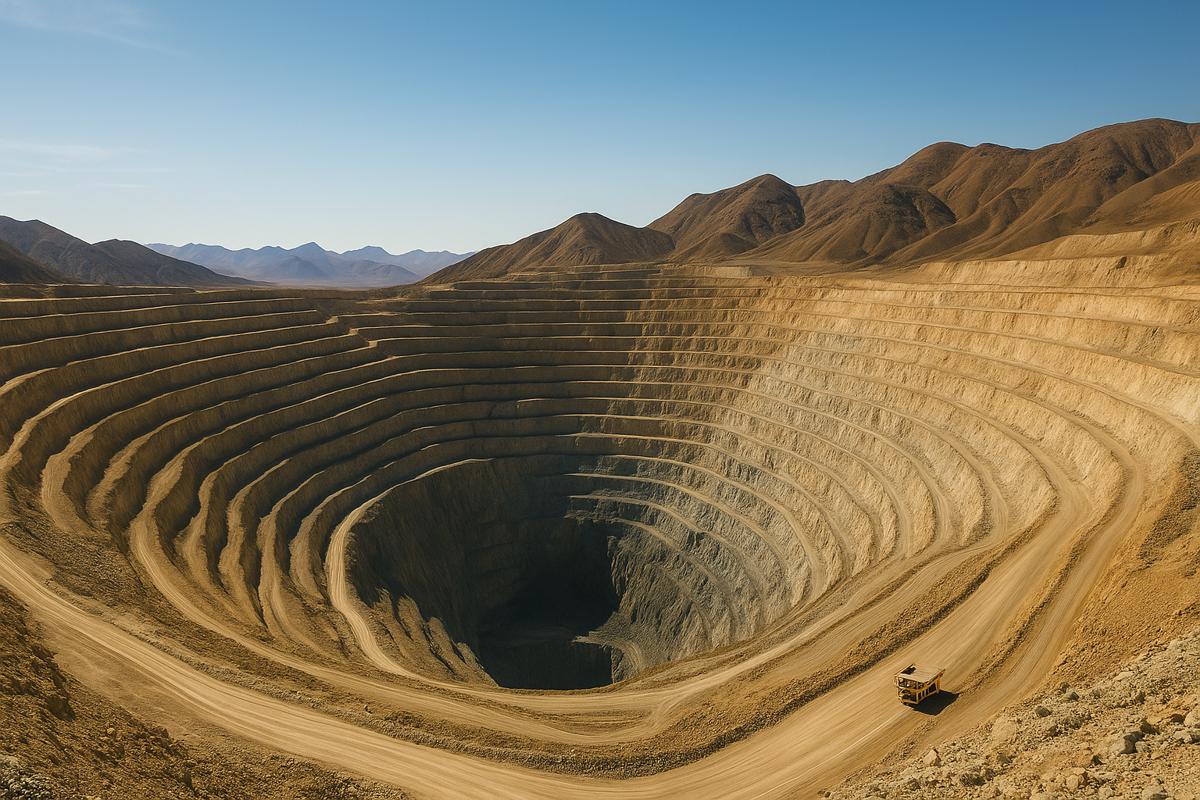A New Dawn for Pakistan’s Mining Industry as Reko Diq Secures ADB Backing
The Asian Development Bank’s (ADB) recent approval of a $410 million financing package for the Reko Diq copper-gold mine has been hailed as a watershed moment for Pakistan’s mining sector and broader economic trajectory. This is not merely another infrastructure deal — it represents the largest foreign direct investment in the country’s history and sets the stage for long-term industrial transformation.
ADB’s commitment comprises $300 million in senior loans to the Reko Diq Mining Company (RDMC) and a $110 million partial credit guarantee to support the Government of Balochistan’s equity stake. This structure derisks the venture, attracting additional private sector and multilateral investment. The International Finance Corporation (IFC) has already committed $700 million, with potential further contributions from the U.S. Export-Import Bank, Export Development Canada, and the Japan Bank for International Cooperation.
“Reko Diq will help the critical minerals supply chain, while advancing the clean energy transition and driving digital innovation across the region and beyond,” said ADB President Masato Kanda. “ADB’s support is also a game-changer for Pakistan, creating quality jobs and underpinning the nation’s transition toward a more resilient and diversified economy.”
A Mega-Mine with Global Significance
When fully operational, Reko Diq will be one of the world’s largest copper mines, projected to rank fifth globally. Phase one production alone is expected to average 800,000 tonnes of copper concentrate annually, with significant gold by-product revenues boosting its economic profile. With an operational life of at least 37 years, the project is poised to be a cornerstone of Pakistan’s mining economy for decades.
The demand for copper is surging globally due to its essential role in renewable energy systems, electric vehicles, batteries, data centres, and consumer electronics. Analysts warn of an impending copper supply gap, making Reko Diq’s timely development critical to both global supply chains and Pakistan’s export earnings.
Transforming Balochistan’s Economic Landscape
Located in the underdeveloped Chagai district of Balochistan, the mine promises profound socio-economic benefits. Thousands of jobs will be created during both construction and operational phases. The project will also channel investment into healthcare, education, and skills training, with a particular focus on empowering women in local communities.
Barrick Gold, the 50% owner and mine operator, is partnering with Balochistan’s provincial government and three federal state-owned enterprises, ensuring a balanced distribution of benefits. The venture is designed with robust environmental, social, and governance (ESG) frameworks, setting a precedent for responsible resource development in the region.
Infrastructure Backbone for Export
The ADB’s involvement extends beyond the mine itself. It is also financing critical transport infrastructure, including a $2 billion upgrade to the Karachi–Rohri railway corridor, essential for moving Reko Diq’s output to global markets. This dual investment in mining and logistics strengthens Pakistan’s position as a reliable exporter of critical minerals.
Financing Model and Risk Mitigation
The innovative financing package demonstrates ADB’s return to mining investments after more than four decades. By providing both direct capital and credit guarantees, the bank is de-risking the project for other lenders, creating a multiplier effect in total funding mobilisation. This structure could serve as a template for future large-scale resource projects in emerging markets.
Navigating Challenges and Scrutiny
Despite the optimism, the project has drawn criticism from environmental groups and community advocates, who raise concerns over potential displacement, ecological disruption, and transparency in revenue management. These issues highlight the importance of rigorous environmental and social impact assessments, which ADB has mandated under its Critical Minerals-to-Manufacturing Value Chains framework.
The legal history of Reko Diq underscores the importance of governance in such ventures. A protracted dispute in 2011 led to international arbitration and a $6 billion penalty against Pakistan. The 2022 settlement that brought Barrick back into the fold restructured the project to align interests between national, provincial, and corporate stakeholders.
Strategic Momentum for Pakistan
Beyond its immediate economic gains, Reko Diq represents a strategic leap for Pakistan. It positions the country as a significant player in the global critical minerals market, diversifies its export base, and strengthens ties with key international partners. Moreover, the infusion of high-quality infrastructure, technical expertise, and sustainable mining practices could have spillover benefits for other sectors.
The combination of resource wealth, strong governance commitments, and international financing muscle could turn Reko Diq into a flagship example of how emerging economies can leverage critical mineral assets for inclusive, long-term growth.
Looking Ahead
If executed with discipline, transparency, and community engagement, Reko Diq could deliver on its promise as a transformative national asset. It offers Pakistan not just a mine, but a platform for technological advancement, industrial diversification, and global market integration.
In the broader picture, the project could well become a symbol of how the convergence of critical mineral demand, clean energy ambitions, and collaborative financing can rewrite the development playbook for resource-rich nations.





























